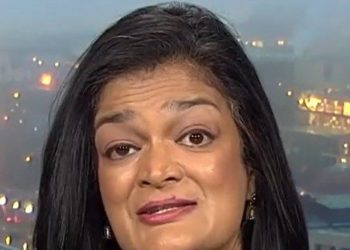Glenn Howerton Almost Quit ‘It’s Always Sunny’ Over Fears The Show “Peaked”
After 20 years of running Paddy’s Pub with the gang, Glenn Howerton has had his share of anxiety about being...
StopAntisemitism founder warns Mamdani as NYC mayor would be ‘catastrophic’ for residents
NEWYou can now listen to Fox News articles! StopAntisemitism founder Liora Rez said electing Zohran Mamdani as New York City...
Navy vet killed in wild shootout that injured Texas cop, who quickly applies tourniquet to herself after being struck: bodycam
A Navy veteran and father of four was shot and killed during a bizarre broad-daylight shootout with Texas cops —...
Patricia Peterson, Innovative Fashion Editor at The Times, Dies at 99
Patricia Peterson, the fashion editor of The New York Times during a distant era when hemlines made headlines and women...
Trump Claims United GOP Front as Defectors Threaten Megabill
President Donald Trump insisted that House Republicans were united behind his megabill even as defectors slowly surfaced during a key...
Judge blocks Trump’s ban on asylum at the southern US border
A federal court has ruled that President Donald Trump overstepped his authority by barring asylum claims at the southern border...
North Hollywood mural lauds Dodgers’ Kiké Hernández ‘for standing up for what is right’
Dodgers utility player Kiké Hernández was not born and raised in Los Angeles. A North Hollywood mural seemingly inspired by...
Heathrow Shutdown Caused by Problem Left Unfixed by Power Company for Years
The fire at an electrical substation that forced Heathrow Airport in London to close for more than 16 hours was...
Jayapal: Trump ‘Has to Apologize’ for ICE Agents Kidnapping, Deporting People
Representative Pramila Jayapal (D-WA) said Wednesday on CNN’s “News Central” that President Donald Trump “has to apologize” for Immigration and...
Shai Gilgeous-Alexander Inks Record-Setting $285 Million USD Extension Contract
Summary Shai Gilgeous-Alexander has signed a four-year, $285 million ISD supermax extension with the Oklahoma City Thunder The contract secures...

















